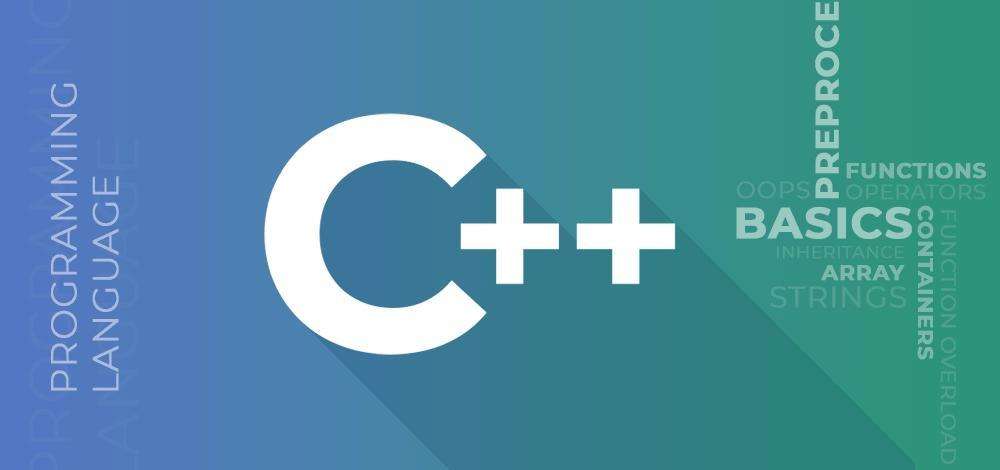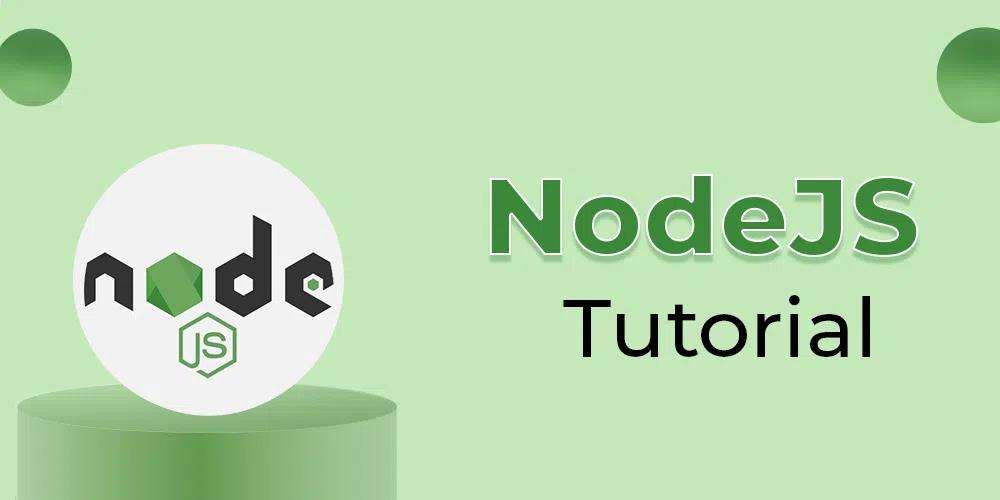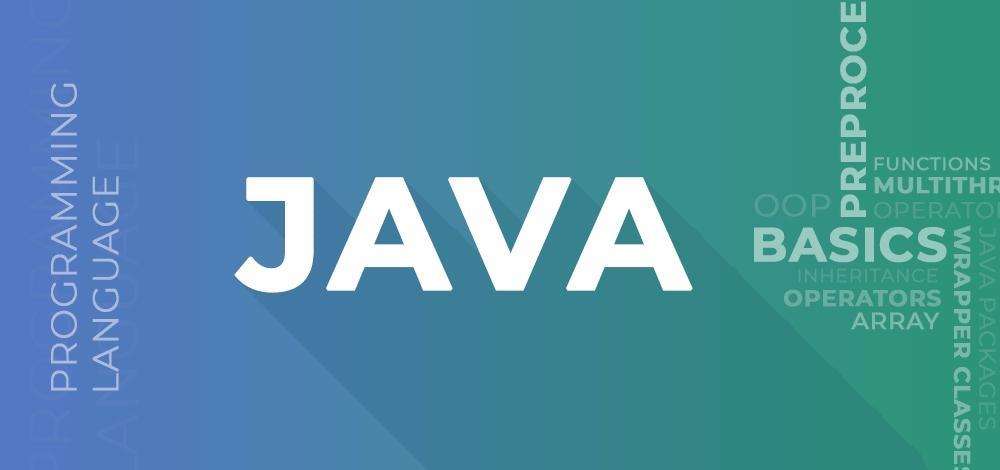
Starting Your journey to Learn C++ is like unlocking a new level of programming prowess. This powerful language sits at the core of computer science and software development, offering unparalleled performance and flexibility. Whether you’re a budding programmer or a seasoned coder, this tutorial and roadmap will guide you through the journey of C++ and set you on a path to coding excellence.
C++ stands as the most favoured and widely-used programming language, crafted by Bjarne Stroustrup. It’s a sophisticated, object-oriented language that empowers coders to produce neat and effective code for extensive projects, including software creation, game design, and system software.
Building on the foundation of the C language, it incorporates Object-Oriented Programming (OOP) principles and is employed in crafting computer programs. This C++ guide will navigate you through all the essential and complex aspects of C++, covering the fundamentals, functions, classes, OOP principles, and Standard Template Library (STL) features.
Getting Started with C++
What is C++?
C++ is renowned as a highly sought-after, versatile programming language that’s instrumental in developing top-tier applications and software, including operating systems, games, and e-commerce platforms.
Conceived by Bjarne Stroustrup, it serves as an enhancement of the C language. C++ offers developers substantial command over system resources and memory management.
Why Learn C++?
Here’s a concise list of the key points about C++:
- High Usage & Popularity: C++ is among the most prevalent programming languages.
- Versatile Applications: Utilized for creating operating systems, embedded systems, and Graphical User Interfaces.
- Object-Oriented: Implements OOP concepts like Abstraction, Encapsulation, and Inheritance, providing structured programming and reusable code, which reduces development costs and enhances security.
- Portability: Can be used to develop adaptable applications for various platforms.
- Beginner-Friendly: C++ is straightforward to learn, making it a suitable first programming language.
- Syntax Familiarity: Its syntax bears resemblance to C, Java, and C#, simplifying the transition for programmers.
C++ Tutorial Overview and summary
¡》C++ Fundamentals:
Begin with the basics. Understand the syntax and structure of C++ by exploring variables, data types, and operators. Practice writing simple programs that perform calculations and display output.
¡¡》Control Structures:
Learn to control the flow of your programs using if-else statements, loops, and switches. These structures will help you make decisions and repeat actions within your code.
¡¡¡》Object-Oriented Programming (OOP)
- Classes and Objects: Dive into the heart of OOP by learning about classes and objects. Discover how to encapsulate data and functions into reusable components.
- Inheritance and Polymorphism: Expand your OOP knowledge by implementing inheritance hierarchies and leveraging polymorphism to create flexible and dynamic code.
¡V》Advanced Topics
- Memory Management: C++ gives you direct control over memory allocation and deallocation. Master pointers, references, and dynamic memory to optimize your programs.
- Templates: Utilize templates to create generic functions and classes that work with any data type, enhancing the reusability and efficiency of your code.
V》Libraries and Tools
- Standard Template Library (STL): The STL is a treasure trove of ready-to-use libraries for data structures, algorithms, and iterators. Learn how to integrate these powerful tools into your projects.
- Development Environments: Familiarize yourself with Integrated Development Environments (IDEs) like Visual Studio, Code::Blocks, or Eclipse to streamline your coding process.
V¡》Building Real-World Applications
- Project Ideas: Put your skills to the test by building projects such as a basic calculator, a file manager, or even a simple game.
- Debugging and Testing: Develop a keen eye for detail by learning debugging techniques and adopting testing practices to ensure your code is robust and error-free.
Complete C++ Tutorial & Roadmap
1. C++ Overview
- Introduction to C++
- Features of C++
- History of C++
- Interesting Facts about C++
- Setting up C++ Development Environment
- Similarities and Differences between C++ and C
2. C++ Basics
- First C++ Program
- C++ Basic Syntax
- C++ Comments
- C++ Tokens
- C++ Identifiers
- C++ Keywords
- Difference between Keyword and Identifier
3. C++ Variables and Constants
- C++ Variables
- C++ Constants
- Scope of C++ Variables
- C++ Storage Classes
- C++ Static Variables
4. C++ Data Types and Literals
- C++ Data Types
- C++ Literals
- C++ Derived Data Types
- C++ User-Defined Data Types
- C++ Data Type Ranges and Their Macros
- C++ Type Modifiers
- C++ Data Type Conversion
- C++ Typecasting Operators
5. C++ Operators
- C++ Operators
- C++ Arithmetic Operators
- C++ Unary Operators
- C++ Bitwise Operators
- C++ Relational Operators
- C++ Logical Operators
- C++ Assignment Operators
- C++ Ternary/Conditional Operators
- C++ Sizeof Operator
- C++ Scope Resolution Operator
6. C++ Input/Output
- C++ Basic Input / Output
- C++ Standard Input Stream (cin)
- C++ Standard Output Stream (cout)
- C++ Standard Error Stream (cerr)
- C++ Input / Output Manipulator
7. C++ Control Statements
- C++ Decision Making
- C++ if Statement
- C++ if-else Statement
- C++ if-else-if Ladder
- C++ Nested if-else Statement
- C++ Switch Statement
- C++ Jump Statements
- C++ Loops
- C++ for Loop
- C++ Range-Based for Loop
- C++ while Loop
- C++ do…while Loop
8. C++ Functions
- C++ Functions
- C++ return
- C++ Parameter Passing Techniques
- Difference between Call by Value and Call by Reference
- C++ Default Arguments
- C++ Recursion
- C++ Inline Functions
- C++ Lambda Expression
9. C++ Pointers and References
- C++ Pointers and References
- C++ Pointers
- C++ Pointer Arithmetic
- Dangling, Void, Null, and Wild Pointers
- Applications of Pointers
- C++ nullptr
- C++ References
- Can references refer to an invalid location in C++?
- Difference Between Pointers and References in C++
- Passing by pointer Vs Passing by Reference in C++
- When do we pass arguments by reference or pointer?
10. C++ Arrays
- C++ Arrays
- C++ Multidimensional Arrays
- C++ Pointer to an Array
- Size of Array parameter
- Passing Arrays to Functions in C++
- What is Array Decay in C++? How can it be prevented?
11. C++ Strings
- C++ Strings
- C++ std::string Class
- C++ Array of Strings
- C++ String Functions
- C++ String Concatenation
- Tokenizing a String in C++
- C++ Substring
12. C++ Structures and Unions
- C++ Structures, Unions, and Enumerations
- C++ Structures
- C++ Pointer to Structure
- C++ Self-Referential Structures
- Difference Between C Structures and C++ Structures
- C++ Unions
- C++ Bit Fields
- C++ Enumeration
- C++ typedef
- Array of Structures vs Array within a Structure in C/C++
13. C++ Dynamic Memory Management
- C++ Dynamic Memory Management
- C++ new and delete Operators
- New vs malloc() and free() vs delete in C++
- Memory leak in C++
- Difference between Static and Dynamic Memory Allocation in C++
14. C++ Object-Oriented Programming
- C++ Object Oriented Programming (OOPs)
- C++ Classes and Objects
- C++ Access Modifiers
- C++ Friend Class and Function
- C++ Constructors
- C++ Default Constructors
- C++ Copy Constructor
- C++ Destructors
- C++ Private Destructor
- When is the Copy Constructor Called?
- Shallow Copy and Deep Copy in C++
- When Should We Write Our Own Copy Constructor?
- Does the Compiler Create a Default Constructor When We Write Our Own?
- C++ Static Data Members
- C++ Static Member Functions
- C++ this pointer
- C++ Scope Resolution Operator vs this pointer
- C++ Local Class
- C++ Nested Classes
- C++ enum Class
- Difference between Structure and Class in C++
- Why C++ is a partially Object Oriented Language?
15. C++ Encapsulation and Abstraction
- C++ Encapsulation
- C++ Abstraction
- Difference between Abstraction and Encapsulation in C++
16. C++ Polymorphism
- C++ Polymorphism
- C++ Function Overriding
- C++ Virtual Functions and Runtime Polymorphism
- Difference between Compile-time and Run-time Polymorphism in C++
- Difference between Inheritance and Polymorphism in C++
17. C++ Function Overloading
- C++ Function Overloading
- C++ Constructor Overloading
- C++ Functions that Cannot be Overloaded
- C++ Function Overloading and const Keyword
- C++ Function Overloading and Return Type
- C++ Function Overloading and float Data Type
- C++ Function Overloading and Default Arguments
- Can main() be overloaded?
- C++ Function Overloading Vs Function Overriding
- Advantages and Disadvantages of C++ Function Overloading
18. C++ Operator Overloading
- C++ Operator Overloading
- Types of C++ Operator Overloading
- C++ Functors
- C++ Operators that Cannot be Overloaded
19. C++ Inheritance
- C++ Inheritance
- C++ Inheritance Access
- C++ Multiple Inheritance
- C++ Hierarchical Inheritance
- C++ Multilevel Inheritance
- C++ Constructor in Multiple Inheritance
- C++ Inheritance and Friendship
- Does Function Overloading Work with Inheritance in C++?
- Difference Between Inheritance and Polymorphism in C++
20. C++ Virtual Functions
- C++ Virtual Functions
- C++ Virtual Functions in Derived Classes
- C++ Default Arguments and Virtual Function
- C++ Inline Virtual Functions
- C++ Virtual Destructor
- C++ Virtual Constructor
- C++ Virtual Copy Constructor
- C++ Pure Virtual Functions and Abstract Class
- C++ Pure Virtual Destructor in C++
- Can Static Functions be Virtual in C++?
- C++ RTTI (Run-Time Type Information)
- Can C++ Virtual Functions be Private?
21. C++ Exception Handling
- C++ Exception Handling
- C++ Exception Handling using Classes
- C++ Stack Unwinding
- C++ User-Defined Exceptions
22. C++ Files and Streams
- C++ Files and Streams
- C++ I/O Redirection
23. C++ Templates
- C++ Templates
- C++ Template Specialization
- C++ using Keyword
24. C++ Standard Template Library (STL)
- The C++ Standard Template Library (STL)
- STL Algorithms
- STL Containers
- STL Vector
- STL Pair
- STL Set
- STL Multiset
- STL Stack
- STL Queue
- STL Priority Queue
- STL Deque
- STL List
- STL Forward List
- STL Map
- STL Multimap
- STL Bitset
- STL Unordered Sets
- STL Unordered Multiset
- STL Unordered Map
- STL Unordered Multimap
25. C++ Iterators
- Introduction to C++ Iterators
- C++ Input Iterators
- C++ Output Iterators
- C++ Forward Iterators
- C++ Bidirectional Iterators
- C++ Random Access Iterators
- C++ istream_iterator and ostream Iterator
- Difference between C++ Iterators and Pointers
26. C++ Preprocessors
- C++ Preprocessor
- C++ Preprocessor Directives
- C++ #include Directive
- C++ #define Directive
- C++ Conditional Preprocessors
- Difference between C++ Preprocessor Directives and Function Templates
27. C++ Namespace
- C++ Namespaces
- Extending C++ Namespace and Unnamed Namespace
- Accessing, Creating Header, Nesting, and Aliasing Namespace
- C++ Inline Namespaces
28. Advanced C++
- C++ Multithreading
- C++ Smart Pointers
- Differences between Different C++ Smart Pointers
- Type of ‘this’ Pointer in C++
- Delete ‘this’ Pointer in C++
- Passing C++ Function as a Parameter
- C++ Signal Handling
- C++ Generics
29. C vs C++
- Differences and Similarities between C++ and C
- Difference between C++ and Objective C
- C programs that won’t compile in C++
- Program that produces different results in C and C++
- Void * in C vs C++
- Type Difference of Character Literals in C vs C++
- Difference between Structures in C and Structures in C++
- Cin-Cout vs Scanf-Printf
30. C++ vs Java
- Differences and Similarities between C++ and Java
- Inheritance in C++ vs Java
- Static keyword in C++ vs Java
- Default Virtual Behavior in C++ vs Java
- Exception Handling in C++ vs Java
- Foreach loop in C++ vs Java
- Templates in C++ vs Generics in Java
- Floating Point Operations & Associativity in C, C++, and Java
31. Competitive Programming in C++
- Competitive Programming – A Complete Guide
- C++ Tricks for Competitive Programming
- Writing C/C++ code efficiently in Competitive Programming
- Why C++ is Best for Competitive Programming?
- Generating Test Cases in C++
- Fast I/O for Competitive Programming in C++
- Setting up Sublime Text for C++ Competitive Programming Environment
- Setting up VS Code for C++ Competitive Programming Environment
- Which C++ libraries are useful for competitive programming?
- Common mistakes to be avoided in Competitive Programming in C++
32. C++ Interview Questions
- Top 50 C++ Interview Questions and Answers
- Top C++ STL Interview Questions and Answers
- 30 OOPs Interview Questions and Answers
- Top C++ Exception Handling Interview Questions and Answers
Applications of C++
Here’s a simplified rewrite of the sentences, maintaining their structure and keywords while using a human tone:
- Operating Systems: C++ is the go-to programming language for operating system development. The majority of Mac OS X is crafted in C++, and a significant portion of Microsoft’s products, including Windows, Microsoft Office, IDE Visual Studio, and Internet Explorer, are developed using C++.
- Games: For game creation, C++ is the preferred choice for many companies. Its ability to work closely with hardware allows for the manipulation of resources and the construction of intricate 3D and multiplayer games. The Unreal game engine, for instance, utilizes C++ for game development.
- Web Browsers: C++ plays a pivotal role in developing many computer web browsers, aiming for efficiency and performance. Mozilla Firefox is entirely built with C++, while Google’s Chrome browser and Google File System have components written in C++.
- Compilers: The compilers for various programming languages are constructed using C and C++, attributed to their relatively lower-level nature, which brings them closer to the hardware.
- Embedded Systems: Devices that require software close to the hardware, such as smartwatches, medical equipment, and mobile phones, are often developed in C++. This language is capable of executing numerous low-level function calls, which is not as common in other high-level programming languages.
- Recent Articles on C++
- C++ Programs
- C++ Interview Questions
If you Prefer a course,
And why go anywhere else when our C++ Programming Complete Course helps you do this in a single program! Apply now to our C++ course and our counsellors will connect with you for further guidance & support.
Conclusion
The road to mastering C++ is challenging but rewarding. With each step on this roadmap, you’ll gain not just knowledge, but the power to create efficient and high-performance software. Embrace the journey, and watch as your coding potential unfolds into reality.
RELATED ARTICLES
- HTML Complete Course Guide From Beginner to Advanced Levels
- HTML Tutorial & Roadmap
- CSS Tutorial & Roadmap
- CSS Complete Guide – From Novice to Pro CSS Concepts
- JavaScript Complete Guide From Beginner to Advanced Levels
- A Comprehensive JavaScript Tutorial & Roadmap
- Complete React Tutorial & Roadmap
- Complete NodeJS Tutorial & Roadmap
- C Programming Language Tutorial & Roadmap
- Complete Ruby Programming Language Guide
- Complete Perl Programming Language Guide
- Complete Java Tutorial & Roadmap
- R Tutorial & Roadmap| Master R Programming with Ease
- PHP Tutorial & Roadmap: A Comprehensive Guide for Developers
- Golang (Go) Programming Tutorial & Roadmap: Go Beyond the Basics
- A Comprehensive SQL Tutorial & Roadmap









